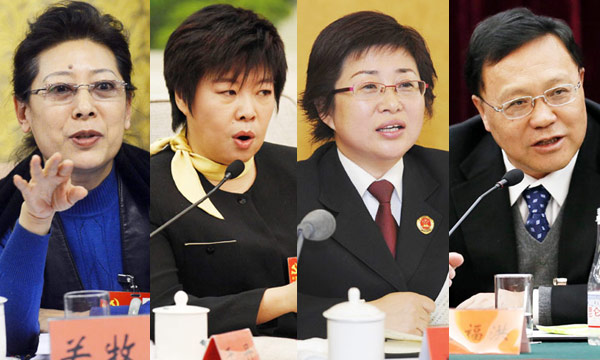The two basic elements in China's policies
(people.com.cn)
Updated: 2007-09-30 13:57
Developments in China over the last few years have shown that whenever an area carries out reform and opens to the outside world, it prospers. Lately some people abroad have been commenting that the pace of reform in China has slowed and predicting that the government is going to change its policies. There is some basis for the first assertion but none at all for the second. Problems will always crop up during the reform process, and adjustments will be made to solve them. Throughout last year and this we have continued our reform and opening up, although at a more cautious pace. Now it looks as though the pace has been a little too slow, so we are proposing to proceed more boldly. Reform and opening up are new undertakings, so we have no precedent to go by; all we can do is proceed in the light of the specific conditions in our country. Our experience indicates that it should be beneficial to go a little faster. Of course, a faster pace also means more risk.
It is our basic line to carry out socialist modernization. If we are to do so and to make China a prosperous and developed country, we must, first, follow the policies of reform and opening up, and second, adhere to the Four Cardinal Principles. By this last I mean in particular the principles of upholding leadership by the Party and following the socialist road -- that is, opposing bourgeois liberalization and rejecting the capitalist road. These two basic points are mutually dependent. In carrying out modernization, the reform and the open policy, we shall encounter interference from both the "Left" and the Right. Interference from the "Left" more often than not arises from the force of habit. When you have been used to one set of rules, it is hard to change. Interference from the Right refers to bourgeois liberalization or wholesale Westernization, including blind copying of Western-style democracy. Of the two types of interference, that from the "Left" is the more frequent. During the period from 1957 to 1978, whenever we suffered, it was always due to interference from the "Left". China is a vast country, and the Party has a long history; it has already been 38 years since the founding of New China. The force of habit is therefore very strong and must not be underestimated. But it is aggravated by interference from the Right, which cannot be ignored either.
Some people abroad have been speculating about which faction I belong to. Just recently I told one of our foreign friends that it is true I am one of the reformers, but I am still opposed to bourgeois liberalization. If you were to say that those who oppose bourgeois liberalization are conservatives, well then, you could also say I am a conservative. To put it more accurately, I belong to the faction that believes in seeking truth from facts, the faction that pursues the policies of reform and opening to the outside world and that upholds leadership by the Party and follows the socialist road.
China is a backward country. If it is to become a developed, modernized country, there must be political stability, strict discipline and good public order; without those we can accomplish nothing. We cannot mechanically copy Western-style democracy, taking it over wholesale; China's affairs have to be handled in light of conditions in China. Democracy in China means socialist democracy, and our socialist democracy and socialist legal system complement each other. We are building a Chinese socialism.
The upcoming Thirteenth National Congress of the CPC will mainly consider two things: first, placing reform of the political structure on the agenda, and second, lowering the average age of the leadership. It will not be easy to tackle these two issues, but it must be done. Political reform cannot be accomplished in one or two years; we'll be doing very well if we can complete it in ten. I'm afraid it will also take ten years to bring the average age of the leadership down close to the ideal.
Both our countries belong to the Third World, and we both hope for world peace. At present it looks unlikely that a third world war will break out soon. Of course, the danger of war still exists, but we can work for quite a long period of peace. If the forces for world peace grow and the Third World countries develop, world war can be avoided. The countries of the Third World should make good use of this time to develop their economies, gradually shaking off poverty and backwardness. In the past we were too sure that world war was imminent, and we neglected the development of our productive forces and our economy. Now, however, in accordance with our new observations and our new analysis of the situation, we are totally committed to economic development. Having been engaged in development for eight years now, we have achieved some preliminary results, but the road ahead is still long and we must keep to it unswervingly. I am sure China can shake off poverty and attain a comfortable standard of living by the end of the century. But it will take us another 50 years or so to reach the level of the moderately developed countries. We are therefore hoping for at least 70 years of peace. We do not want to miss this opportunity for development.
(Excerpt from a talk with President Hussain Muhammad Ershad of Bangladesh.)

Top News
Xi emphasizes adherence to CPC Congress spirit
Top legislator urges implementation of congress spirit
Moderately prosperous China brings chances to world
Video







